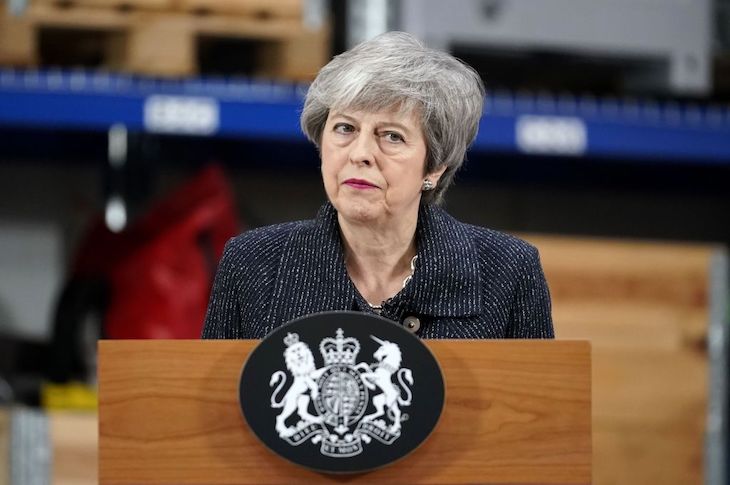This evening Theresa May’s week went from awful to terrible. After her deal was heavily defeated for a second time on Tuesday night, the Prime Minister had planned to placate MPs by offering them a free vote on whether they wished to try and rule out a no deal Brexit. As Isabel reports on Coffee House, that plan soon backfired. A backbench amendment from Tory MP Caroline Spelman to try and rule out no deal in more explicit terms than the government’s motion passed by four votes. At that point, the government changed its voting strategy and whipped its MPs to vote against the motion – effectively voting to keep no deal as an option.
This led to much confusion in the voting lobbies. Some Cabinet Ministers chose to abstain and at least one junior minister opted to resign so they could vote against no deal. In the end, the government lost. Not helping matters for Brexiteers, the Eurosceptic friendly amendment – calling on the government to negotiate something along the lines of a managed no deal as per the Malthouse Compromise – only won 164 votes in favour of it.
However, it is possible that this evening’s debacle actually helps Theresa May pass her Brexit deal. It’s clear from the votes that as things stand there is no majority for no deal and even though no deal is the default, a majority of MPs will do what they can to stop it from happening. If there is a majority for anything in the Commons, it is most likely a soft Brexit.
The reason this could help May is No. 10 aides are already working out how they can bring back her deal for one more vote – Meaningful Vote 3. If they are to have any chance of winning it, the Prime Minister must convince more Brexiteers to get behind it. On Tuesday night, Jacob Rees-Mogg said he – and most of the European Research Group – would only vote for May’s deal if they genuinely believed Brexit was in peril. He said they would not be bounced into voting for the deal if it was merely a ‘phantom’ threat by No. 10. After tonight’s antics in the Commons, Rees-Mogg and co may now conclude that Brexit really is in peril.







Comments